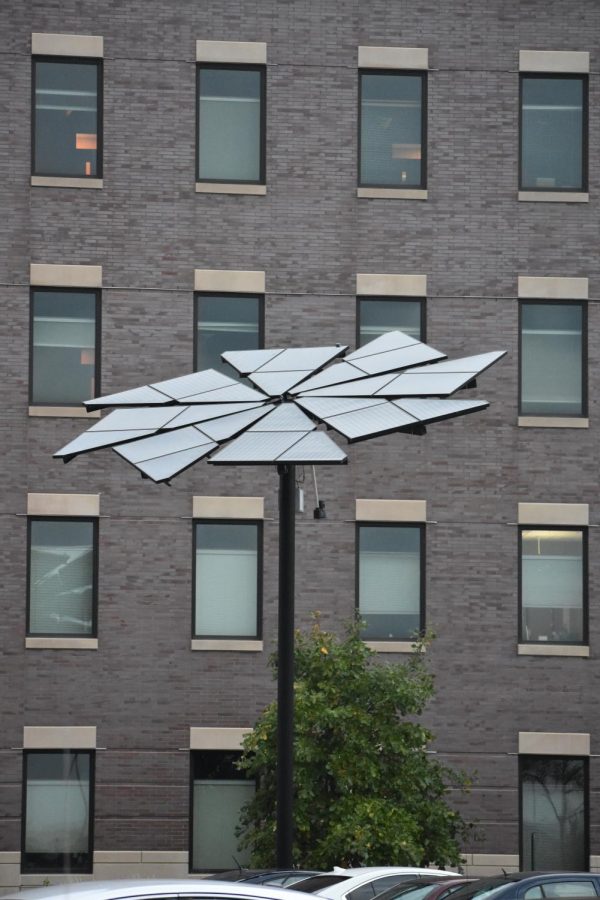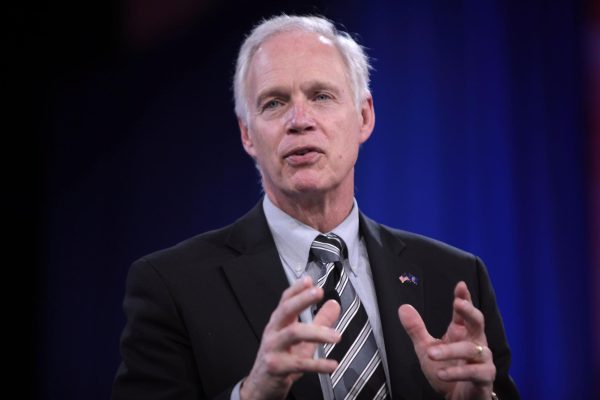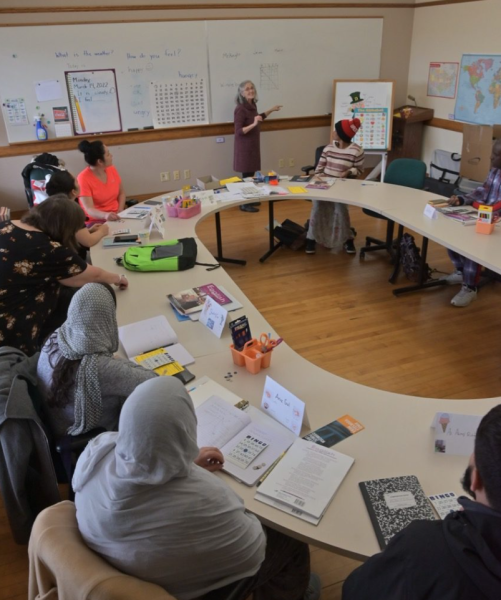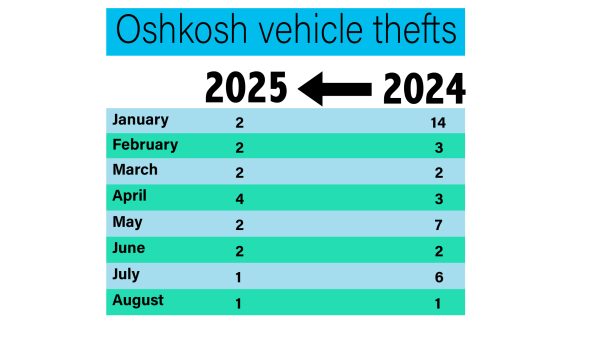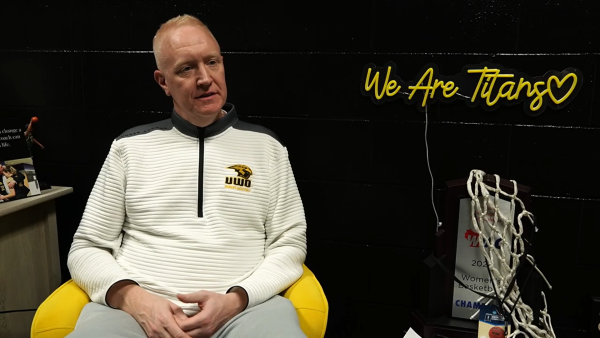Solar tour displays UWO’s commitment to sustainability
Sage hall displays solar lights.
UW Oshkosh invited visitors to tour Sage Hall on Saturday when visitors could tour the solar panels and talk to professors about renewable energy technologies.
The event ran from 10 a.m. until 4 p.m.; tours were conducted by UWO’s sustainability director Brian Kermath and Sustainability Institute for Regional Transformations Director Kevin Crawford.
The solar tour was a national event, and the Wisconsin arm was run by the Midwest Renewable Energy Association, featuring 150,000 participants and 5,000 solar energy sites statewide.
Kermath said the purpose of the tour was to generate interest in solar energy.
“Obviously if you’re interested in a solar tour, you might be interested in solar energy; maybe you want to put solar panels on your house or something like that,” Kermath said. “It’s also to make people that aren’t thinking about it to maybe start thinking about it.”
Crawford said sustainability is important because it forces us to look at how we are using resources.
“The main idea behind sustainability is thinking about how we use resources and using them in ways that allow us to be successful but also allow future generations to be successful,” Crawford said.
Kermath said the current sustainability movement has deep roots in the environmental movement of the 1960s and ’70s.
“We see things like global climate change and biodiversity loss around the world as being problems that the solutions in the ’70s aren’t addressing; the sustainability movement grew up to address those big global issues as well as local issues,” Kermath said. “Unfortunately, we seem to be peeling back regulations that are necessary to clean up some of the issues of the past.”
Kermath said UWO’s commitment to sustainability goes beyond the solar panels outside and on top of Sage Hall.
“We’ve retrofitted a lot of the older buildings with more efficient air handlers and heating and cooling systems and lighting,” Kermath said. “We’ve replaced inefficient energy
technologies; we’ve changed out most of the plumbing fixtures so all the toilets on campus use less water than they used to. Those are things that aren’t readily visible like the solar panels are.”
Crawford said UWO does more than utilize renewable energy and sustainable technologies.
“We’ve also been consistently reporting data to the Association for the Advancement of Sustainability, which is a national ranking system that allows us to see what we’re doing, and it allows other people to see what we’re doing,” Crawford said. “We have also added sustainability into our curriculum.”
Environmental studies Program Director Jim Feldman said he hopes that more businesses will begin switching to renewable energies, but his more pessimistic side believes that they won’t until forced.
“When solar and other kinds of renewables are less available, people will continue using carbon,” Feldman said. “Our economy is really set up for carbon energy.”
Feldman said he believes one of the reasons more people haven’t switched is a perception of sacrifice associated with switching to renewable energy.
“There’s economic opportunity in retrofitting buildings for solar and investing in other forms of renewable energy,” Feldman said. “If people looked at renewables as an opportunity rather than a sacrifice, more people would switch.”
Crawford said students can help make society more sustainable by changing their consumer habits.
“When a company releases a new cell phone and everyone is running out to buy it even though their existing cell phone is just fine, things like that, do you really need to replace that thing now?” Crawford said. “I would like to see more repairable things and more options for repairing things.”
Kermath said students can help society become more sustainable through collective action.
“Vote for people that will make public policy that will make a difference,” Kermath said. “We need more public transportation, and we aren’t going to get that by being an individual; we have to do that collectively. We have to agree to do big things collectively. I think that’s the biggest thing we can do.”


